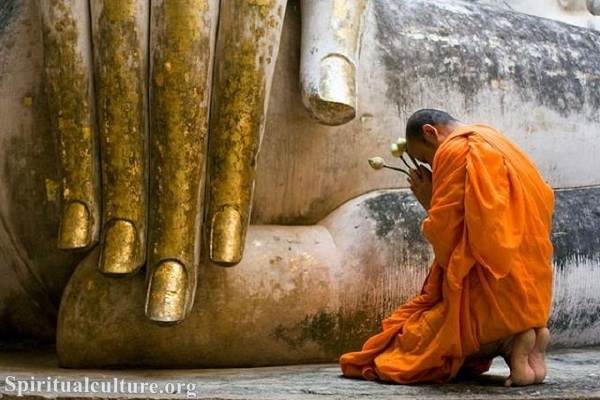We are born. We live. We die.
Yet in every human heart, there lingers a question that no science can fully answer: What happens after we die? This question echoes across time and culture, religion and reason. It’s whispered at gravesides, pondered in quiet solitude, and shouted in moments of suffering and awe.
As Spiritual Culture, we walk alongside those who seek. In this article, we journey through the world’s sacred wisdom, spiritual insights, and contemplative truths to explore not just what happens after death — but what life, death, and the beyond truly mean for the soul.
The Universal Longing for Life Beyond Death
Why This Question Matters to Every Soul
Death is not merely an event. It’s a mirror, reflecting life’s deepest questions. Whether you’re religious, spiritual, or simply curious, wondering about what lies beyond the final breath is part of being human. We long to know:
- Is death the end or a doorway?
- Will we see our loved ones again?
- Does the soul live on?
This longing is not weakness. It is a spiritual invitation — to see life not only in terms of years, but in terms of eternity.
The Fear and Mystery of Death
Many fear death because it seems like the great unknown. But mystery is not always something to fear. In sacred traditions, mystery is sacred. It is the space where the divine meets the human. The veil that separates life from death may not be an end — but a threshold.
Life After Death in the World’s Major Religions
Christianity: Eternal Life Through Christ
In Christianity, death is not the end, but a transition. The soul lives on — and for those who follow Christ, it enters eternal communion with God.
“I am the resurrection and the life. The one who believes in me will live, even though they die.” — John 11:25 (NIV)
Christian theology teaches:
- The soul is eternal.
- There is judgment — a revealing of truth.
- Heaven and hell are real destinies.
- Through Christ, salvation and eternal life are offered freely.
This vision is not meant to terrify, but to invite — into a life of grace, love, and redemption that echoes into eternity.
Hinduism: Rebirth and Liberation
Hinduism views death as a passage within a greater cycle of life: samsara — the wheel of birth, death, and rebirth.
- The soul (atman) is immortal.
- One’s actions (karma) determine the next birth.
- The ultimate goal is moksha — liberation from this cycle and union with the divine.
Death, then, is not an ending, but a step on the soul’s long journey toward spiritual freedom.
Buddhism: Impermanence and Awakening
In Buddhism, death is a moment of transition within a universe marked by impermanence (anicca). There is no eternal “self,” but consciousness continues — shaped by karma — into rebirth.
- Mindfulness at death matters greatly.
- The ultimate goal is nirvana — the end of suffering and desire.
- The Tibetan Book of the Dead offers guidance for the soul in the bardo, the intermediate state.
Rather than fear death, Buddhists are invited to befriend it — as a teacher of truth and a doorway to awakening.
Islam: The Grave, the Reckoning, and Paradise
Islam offers a vivid and reverent view of what happens after death:
- The soul enters the grave and awaits the Day of Judgment.
- It experiences either peace or trial, depending on one’s faith and deeds.
- On the Day of Resurrection, all are raised and judged by Allah.
- The righteous are granted Jannah (Paradise), a place of beauty and reward.
“Every soul shall taste death. And you will only be given your [full] compensation on the Day of Resurrection.” — Qur’an 3:185
This teaches both accountability and mercy — and the hope of an eternal home for those who walk with God.
Judaism: A Mystery Wrapped in Hope
Judaism, especially in its ancient texts, offers a less defined view of the afterlife — yet one filled with sacred hope.
- The Hebrew Bible speaks of Sheol, a shadowy realm of the dead.
- Later Jewish thought includes belief in resurrection, Olam Ha-Ba (the world to come), and divine judgment.
- The emphasis is often on living righteously now.
Rather than offer detailed descriptions, Judaism trusts that whatever comes after death, it is in the hands of a just and loving God.
The Soul: Does It Survive?
What Is the Soul?
Across many traditions, the soul is seen as the true self — the eternal spark within us that reflects the divine.
- In Christianity, it is made in God’s image.
- In Hinduism, it is the unchanging atman.
- In Islam, it is the ruh breathed by God.
- In many indigenous traditions, it is part of the sacred web of all life.
The idea that something within us continues — that the essence of who we are is not destroyed by death — is a core spiritual belief.
Near-Death Experiences and Testimonies
Modern accounts of near-death experiences (NDEs) have added mystery and hope to this ancient conversation. People report:
- Seeing light or a divine presence
- Feeling peace, love, or reunion
- Life reviews and clarity about purpose
While not proof, these accounts resonate with the teachings of many faiths — that death is not an end, but a return.
What Sacred Texts Say About the Afterlife
From the Bible
“Then the dust will return to the earth as it was, and the spirit will return to God who gave it.” — Ecclesiastes 12:7
“To be absent from the body is to be present with the Lord.” — 2 Corinthians 5:8
From the Bhagavad Gita
“Just as a man discards worn-out clothes and puts on new ones, so also the soul discards worn-out bodies and enters others.” — Bhagavad Gita 2:22
From the Quran
“It is Allah who takes away the souls at the time of their death, and those that die not during their sleep.” — Qur’an 39:42
From the Dhammapada
“Not in the sky, nor in the ocean, nor in a mountain cave, is there a place where one may escape death.” — Dhammapada, Verse 128
These texts, though different in origin, share a common truth: that death is real — but so is the soul’s journey beyond it.
How Cultures Honor the Dead
Rituals That Reflect Beliefs
Around the world, burial and mourning rituals reflect beliefs about life after death:
- Christian funerals often affirm resurrection and hope.
- Hindu cremation symbolizes release of the soul.
- Jewish mourning includes Shiva, honoring both grief and memory.
- Muslim burial is swift, humble, and rooted in surrender to God.
- Indigenous traditions often involve songs, offerings, or ancestor veneration.
These acts are not just cultural — they are sacred echoes of a deeper conviction: that love and soul do not end at the grave.
The Role of Death in Spiritual Transformation
Death as Teacher, Not Enemy
Spiritual traditions do not simply view death as something to be avoided — but as a teacher.
- It reveals what truly matters.
- It calls us to live with urgency, compassion, and humility.
- It reminds us that we are not our achievements or appearances.
When faced honestly, death awakens us. It leads to deeper presence, purpose, and peace.
Memento Mori — Remember You Must Die
From Christian monks to Stoic philosophers, the phrase memento mori reminds us:
“Remember you will die — so live wisely.”
In contemplating death, we learn to cherish life. In knowing our time is limited, we are invited to live fully, lovingly, and awake.
Reflect and Reimagine
So what happens after we die?
No one can answer it completely. But through sacred texts, spiritual insights, and human experience, we hear this shared whisper:
The soul continues. Love endures. Death is not the end.
As Spiritual Culture, we do not claim to know every detail of the afterlife. But we do believe this:
You are more than flesh. Life is more than years. And death — far from being a final curtain — may just be a doorway into something greater, deeper, and eternally beautiful.
Live with that truth. Love with that awareness. And may you walk this life ready for the next.


